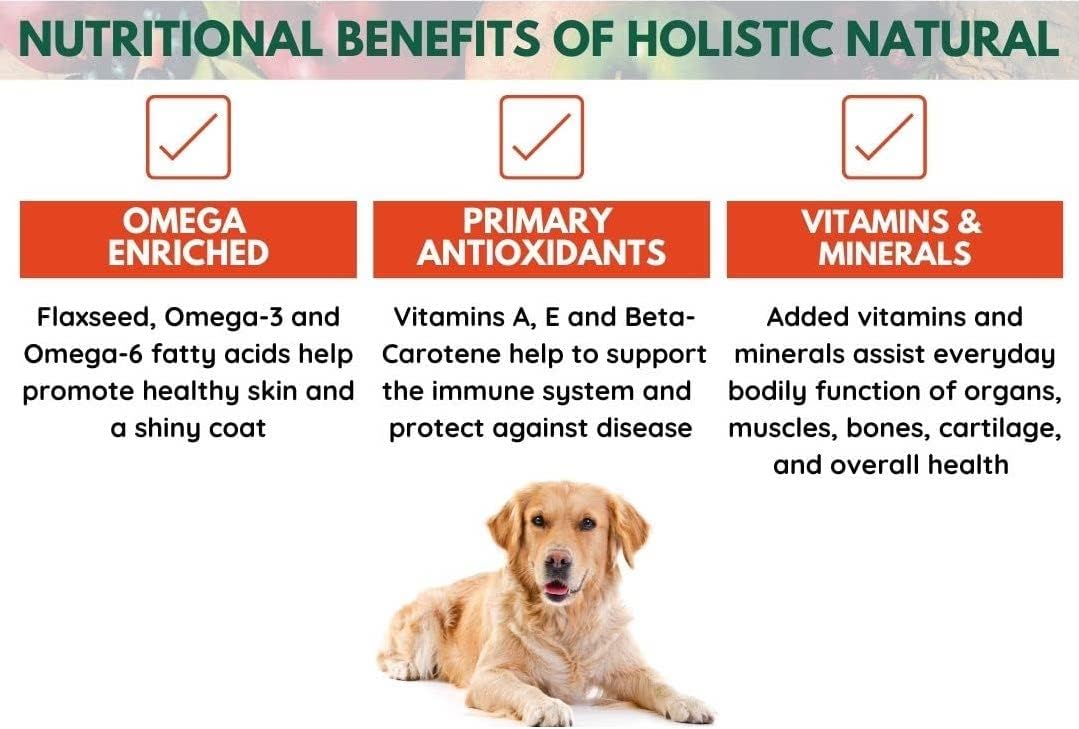






Unlocking Superior Nutrition for Your Canine Companion
When it comes to our furry friends, providing superior nutrition plays an essential role in their overall health and wellbeing. Understanding the best sources of nutrients can dramatically affect their energy levels, coat quality, and longevity. In this comprehensive guide, we will delve deep into the quality protein sources, carbohydrates, fruits and vegetables, and essential fatty acids that contribute to a holistic natural canine diet.
What Makes Quality Protein Sources Essential?
Protein is a major building block in your dog’s body. It is crucial for muscle development, tissue repair, and overall functioning. Not all proteins are created equal; the source from which they derive significantly impacts their quality.
High-Quality Protein Sources
-
Egg Products: Rich in essential amino acids, egg products stand out as one of the best sources of protein for dogs. They are highly digestible and provide all nine essential amino acids that dogs cannot produce by themselves.
- Chicken Fat: A prime source of both energy and essential fatty acids, quality chicken fat not only enhances palatability but also supports nutrient absorption. This quality fat helps maintain a shiny coat while providing a concentrated source of energy.
How Do Quality Carbohydrates Fuel Your Dog?
While proteins are vital, carbohydrates provide a secondary fuel source that is equally important. They also aid in digestion when they come from quality sources.
Top Quality Carbohydrate Sources
-
Quinoa: This unique grain is bursting with vitamins, minerals, and essential amino acids. Unlike some other grains, quinoa is gluten-free and serves as a great alternative for dogs with food sensitivities.
- Sweet Potatoes and Peas: These nutritional powerhouses add fiber, vitamins, and minerals. They help stabilize blood sugar levels while promoting good digestion.
Why Are Fruits and Vegetables Important?
Incorporating fruits and vegetables into your dog’s diet can significantly enhance their health. These foods are rich in antioxidants, vitamins, and minerals which promote a robust immune system.
Beneficial Fruits and Vegetables for Dogs
-
Carrots: Great for dental health, carrots are rich in beta-carotene, which promotes good vision. They can also provide a satisfying crunch that dogs love.
-
Pumpkin: Packed with fiber, pumpkin helps in digestion. It can alleviate both diarrhea and constipation in dogs.
- Blueberries and Cranberries: Both fruits are loaded with antioxidants. They promote a healthy urinary tract and support overall health.
The Role of Omega Fatty Acids in Canine Health
Essential fatty acids, particularly Omega 3 and Omega 6, substantially contribute to your dog’s skin and coat health, making them a must in any canine diet.
Sources of Omega Fatty Acids
-
Flaxseed: This plant-based source of Omega-3 fatty acids supports skin health and contributes to a shiny coat while providing anti-inflammatory benefits.
- Fish Oil: Omega-3s from fish oil can also help with joint health and may alleviate conditions like arthritis in older dogs.
Antioxidants: What Are They and Why Are They Crucial?
Antioxidants combat oxidative stress and promote longevity in dogs. They are vital for maintaining healthy cells and tissues.
Three Primary Antioxidants to Consider
-
Vitamin A: This nutrient supports vision and skin health. It plays an essential role in repairing tissues.
-
Vitamin E: This vitamin helps in promoting a healthy immune system and supports skin integrity and coat health.
- Beta-Carotene: Found in many colorful fruits and vegetables, beta-carotene is transformed into Vitamin A in the body, aiding in overall immune function.
What Should You Look for in a Dog Food?
Choosing the right dog food can be overwhelming. Here are key elements to consider:
Ingredients Matter
Look for foods that list quality protein sources at the top of the ingredient list, followed by whole grains, fruits, and vegetables. Avoid food with fillers, artificial colors, or preservatives.
Check for Complete Nutrition
Ensure that the dog food meets the standards set by AAFCO (Association of American Feed Control Officials). This guarantees that the food is nutritionally balanced.
Pros and Cons of Holistic Dog Food
Pros
-
Comprehensive Nutrition: Holistic dog food combines various nutrient-dense ingredients to support overall health.
-
Improved Digestion: Quality ingredients enhance the digestibility of the food, reducing gastrointestinal issues.
- Healthier Coats: The right balance of proteins, fatty acids, and antioxidants contributes to better skin and coat quality.
Cons
-
Cost: High-quality holistic dog food can be more expensive than standard brands.
- Availability: Not all pet stores stock these specialized foods, making them harder to find.
Conclusion
Investing in your dog’s nutrition is investing in their health and happiness. By choosing high-quality protein sources, nutritious carbohydrates, and antioxidant-rich fruits and vegetables, you will set your canine companion on the path to a healthier life. Introducing Omega fatty acids and being vigilant about ingredient quality can make a significant difference in your dog’s overall wellbeing.
Frequently Asked Questions (FAQs)
1. Can I mix different brands of dog food?
Mixing different brands can cause digestive issues. If you want to switch brands, do it gradually.
2. How much protein does my dog need?
The protein requirement varies by breed, age, and activity level. Consult your vet for personalized advice.
3. Is grain-free dog food better?
Not necessarily; some dogs do well on grain-free diets, while others thrive on food that includes whole grains. Assess your dog’s specific needs.
4. What are the signs of a poor diet in dogs?
Signs include poor coat quality, lethargy, weight gain or loss, and digestive issues. Regular vet check-ups can help identify these problems early.
5. How can I improve my dog’s skin and coat health?
Incorporate foods rich in Omega-3 fatty acids and antioxidants into their diet for better skin and coat health.
Make informed choices, and your dog will thrive on a well-rounded, holistic diet.








